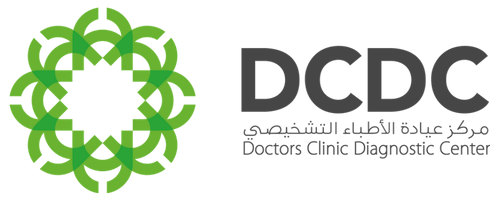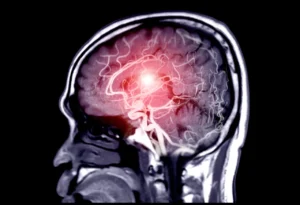In the realm of modern medicine, diagnostic imaging has revolutionised the way healthcare professionals understand and treat various medical conditions. Among the most crucial tools in this domain is Magnetic Resonance Imaging (MRI). MRI scans provide detailed images of the internal structures of the body, enabling healthcare providers to diagnose a wide range of conditions accurately. In this blog, we’ll delve into the significance of MRI scans and explore the comprehensive services they offer beyond mere diagnosis.
Understanding MRI Scan Services
MRI scans utilise a powerful magnetic field, radio waves, and a computer to generate detailed images of organs, tissues, bones, and other internal structures within the body. Unlike X-rays or CT scans, MRI scans do not use ionising radiation, making them a safer option for patients, especially for repeated imaging.
Comprehensive MRI scan services encompass a wide array of imaging techniques tailored to address diverse medical needs. These services may include:
1. Neuroimaging:
MRI scans of the brain and spinal cord are essential for diagnosing conditions such as strokes, brain tumours, multiple sclerosis, and spinal cord injuries. Advanced techniques like functional MRI (fMRI) can also map brain activity, aiding in the understanding of neurological disorders.
2. Musculoskeletal Imaging:
MRI scans are valuable for evaluating injuries or conditions affecting the muscles, bones, joints, and soft tissues. They can help diagnose fractures, ligament tears, tendonitis, arthritis, and herniated discs, guiding appropriate treatment plans.
3. Cardiovascular MRI:
This specialised imaging technique focuses on assessing the structure and function of the heart and blood vessels. It aids in diagnosing heart diseases, such as myocardial infarction (heart attack), congenital heart defects, and cardiomyopathies.
4. Abdominal and Pelvic Imaging:
MRI scans of the abdomen and pelvis provide detailed views of organs such as the liver, kidneys, pancreas, and reproductive organs. They assist in detecting tumours, cysts, inflammatory conditions, and abnormalities in these regions.
5. Breast MRI:
In addition to mammography, breast MRI is utilised for screening high-risk individuals, evaluating breast abnormalities, and staging breast cancer. It offers detailed images that can help in early detection and treatment planning.
The Role of Comprehensive MRI Scan Services
Beyond the initial diagnosis, comprehensive MRI scan services play a pivotal role in various aspects of patient care and medical research:
1. Treatment Planning:
Detailed MRI images aid healthcare providers in developing personalised treatment plans for patients. By accurately visualising the extent and nature of a medical condition, MRI scans help determine the most appropriate course of action, whether it involves surgery, medication, or other interventions.
2. Monitoring Disease Progression:
For chronic or progressive conditions, such as multiple sclerosis or cancer, regular MRI scans are essential for monitoring disease progression and evaluating the effectiveness of treatment. Changes in the size, shape, or characteristics of lesions can provide valuable insights into the patient’s response to therapy.
3. Surgical Guidance:
In surgical settings, preoperative MRI scans help surgeons plan their approach with precision. By visualising critical structures and their relationship to the pathology, surgeons can optimise surgical outcomes, minimise risks, and preserve healthy tissues.
4. Research and Development:
MRI technology continues to evolve, driven by ongoing research and innovation. Comprehensive MRI scan services contribute to medical research by facilitating studies on disease mechanisms, treatment outcomes, and the development of new imaging techniques and biomarkers.
Advancements in MRI Technology
The field of MRI continues to advance rapidly, introducing new technologies and techniques that enhance diagnostic accuracy, imaging speed, and patient comfort. Some notable advancements include:
1. High-Field MRI:
Increasing the strength of the magnetic field improves image resolution and clarity, allowing for better visualisation of small anatomical structures and subtle abnormalities.
2. Functional MRI:
This technique measures changes in blood flow within the brain, providing insights into brain activity and connectivity. fMRI is valuable for mapping areas of the brain involved in specific functions such as language, motor skills, and memory.
3. Diffusion Tensor Imaging (DTI):
DTI is a specialised MRI technique that maps the pathways of white matter fibers in the brain. It is used to study conditions affecting the brain’s connectivity, such as traumatic brain injury and neurodegenerative diseases.
4. Contrast-Enhanced MRI:
Contrast agents administered intravenously can improve the visibility of certain tissues or pathologies on MRI scans. These agents help differentiate between normal and abnormal tissues, enhancing diagnostic accuracy.
Patient Experience and Safety
Comprehensive MRI scan services prioritise patient comfort, safety, and convenience. MRI technologists and radiologists are trained to ensure that patients receive the highest standard of care throughout the imaging process. Measures taken to enhance the patient experience may include:
1. Patient Education:
Before the scan, patients receive detailed instructions about the procedure and what to expect. Addressing any concerns or questions helps alleviate anxiety and ensures cooperation during the scan.
2. Comfort Measures:
MRI facilities strive to create a comfortable environment for patients, offering amenities such as music, earplugs, and blankets. Open MRI machines or wide-bore systems are available for patients who experience claustrophobia or discomfort in traditional MRI scanners.
3. Safety Protocols:
MRI facilities adhere to strict safety protocols to minimise risks associated with magnetic fields and radiofrequency energy. Patients are screened for any contraindications, such as implanted devices or metallic objects, and appropriate safety measures are implemented.
4. Efficient Workflow:
To minimise wait times and streamline the imaging process, MRI facilities prioritise efficient scheduling and workflow management. This ensures that patients receive timely access to diagnostic services without unnecessary delays.
Conclusion
Comprehensive MRI scan services represent a cornerstone of modern healthcare, providing invaluable insights into the structure and function of the human body. Beyond mere diagnosis, MRI scans play a vital role in treatment planning, disease monitoring, surgical guidance, and medical research. With ongoing advancements in MRI technology and a commitment to patient-centred care, these services continue to evolve, offering new opportunities for improving patient outcomes and advancing medical knowledge. As we look to the future, the impact of comprehensive MRI scan services in transforming healthcare is bound to grow, shaping the way we understand and manage various medical conditions.





